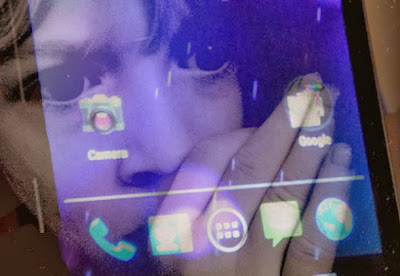Are you addicted to your phone? According to a recent survey in the UK, almost two thirds of respondents were afflicted with “nomophobia” or “no mobilephone phobia”. “Some people get panic attacks when they are without their phones,” said Michael Carr, an adolescent psychologist. “Others become very concerned and make all endeavors to locate their mobile phone. I have clients who abstain from school or their part-time jobs to look for their phones when they cannot find them in the morning.”
According to the survey, the younger you are, the more prone you are to nomophobia. The youngest age group (18-24) tops the nomophobic list at 77%, which is 11% more than that of the next group – those aged 25-34. “This is the most tribal generation of young people,” said Carr. “Adolescents want to be with their friends on a 24-hour basis.”
The reasons that drive young people to nomophobia include boredom and insecurity, while some young nomophobes cannot bear solitude. “Many of my clients go to bed with their mobile phones just like one did with a teddy bear in the old days,” he said. “While teddy doesn't communicate, the phone does,” said Carr, adding insomnia to the list of potential problems. “Some kids cannot entertain themselves. The phone has become our digital security blanket.”
Accidents lurk while nomophobes fix their attention on phones. Nomophobes reported accidents while messaging or talking on the phone, which include minor road accidents, falling while going upstairs or downstairs and stumbling while walking. More than 20% also reported pain in the thumbs due to excessive texting.
According to the survey, the younger you are, the more prone you are to nomophobia. The youngest age group (18-24) tops the nomophobic list at 77%, which is 11% more than that of the next group – those aged 25-34. “This is the most tribal generation of young people,” said Carr. “Adolescents want to be with their friends on a 24-hour basis.”
The reasons that drive young people to nomophobia include boredom and insecurity, while some young nomophobes cannot bear solitude. “Many of my clients go to bed with their mobile phones just like one did with a teddy bear in the old days,” he said. “While teddy doesn't communicate, the phone does,” said Carr, adding insomnia to the list of potential problems. “Some kids cannot entertain themselves. The phone has become our digital security blanket.”
Accidents lurk while nomophobes fix their attention on phones. Nomophobes reported accidents while messaging or talking on the phone, which include minor road accidents, falling while going upstairs or downstairs and stumbling while walking. More than 20% also reported pain in the thumbs due to excessive texting.
1.- Are the following statements TRUE or FALSE? Copy the evidence from the text. No marks are given for only TRUE or FALSE.
a) The “nomophobia” study was carried out on an international basis.
b) A number of phone addicts cannot stand to feel lonely.
2.- In your own words and based on the ideas in the text, answer the following questions. Do not copy from the text.
a) What are the symptoms of “nomophobia”? Mention three.
b) What kind of accidents and injuries can nomophobes have?
3.- Find the words in the text that mean:
a) The “nomophobia” study was carried out on an international basis.
b) A number of phone addicts cannot stand to feel lonely.
2.- In your own words and based on the ideas in the text, answer the following questions. Do not copy from the text.
a) What are the symptoms of “nomophobia”? Mention three.
b) What kind of accidents and injuries can nomophobes have?
3.- Find the words in the text that mean:
- a) anxious (paragraph 1): concerned
- b) attempts (paragraph 1): endeavours
- c) inclined (paragraph 2): prone
- d) because of (paragraph 4): due to
4.- Complete the following sentences. Use the appropriate form of the word in brackets when given.
- a) Individuals who/that use their mobile phone for more than 3 hours a day have a better / good (good) chance of getting nomophobia.
- b) Experts suggest switching off (switch off) our mobile phones while driving / we drive (drive).
- c) Since 2007, nomophobia in India has grown (grow) to about 45% of the population.
Complete the following sentence to report what was said.
5.- Write about 100 to 150 words on the following topic.
Do you think Spanish teenagers are addicted to their mobile phones? Give reasons for your answer.
+EXÁMENES RESUELTOS - d) Have you ever slept with your mobile phone?
- The doctor asked me if / whether I had ever slept with my mobile phone.
5.- Write about 100 to 150 words on the following topic.
Do you think Spanish teenagers are addicted to their mobile phones? Give reasons for your answer.


No hay comentarios:
Publicar un comentario